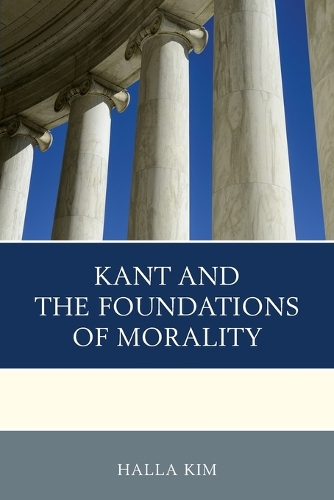
Kant and the Foundations of Morality
(Paperback)
Available Formats
Publishing Details
Kant and the Foundations of Morality
By (Author) Halla Kim
Bloomsbury Publishing PLC
Lexington Books
14th November 2016
United States
Classifications
Professional and Scholarly
Non Fiction
Ethics and moral philosophy
170
Physical Properties
Paperback
196
Width 151mm, Height 230mm, Spine 22mm
476g
Description
Halla Kim explores the leading themes in Kants philosophical ethics from a structural-methodological point of view to highlight the activities of reason vis--vis the blind forces of brute nature. Basing the study on Kant's short, but monumental, Groundwork of the Metaphysics of Morals, Kim also draws on other major writings by Kant and his critics. Kim shows that philosophical ethics, as Kant conceived it, must capture the gist of the ineluctable, inescapable, and irreducible freedom we strive to exemplify in our practical lives. Viewed this way, the moral law is none other than the law of the will determining itself. It is the law of the self-activity of the will. Contending that the concepts and doctrines in Kants ethics should be understood as an ethics of the self-activity of the will, Kim argues that the categorical imperative is the particular way this moral law is addressed to finite rational beings. Kant and the Foundations of Morality provides new perspective on the philosopher's thought to benefit studies of eighteenth-century philosophy, epistemology, modern philosophy, moral theory, moral philosophy, and ethics.
Reviews
Kant's Groundwork of the Metaphysics of Morals is his most popular and influential book, but one with many complexities. Halla Kim's clear and detailed discussion of Kant's ethics is especially valuable because of the way in which it clarifies the significant interrelations of the three sections of Kant's book. Highly recommended. -- Karl Ameriks, University of Notre Dame
Author Bio
Halla Kim is associate professor of philosophy and faculty at the Schwalb Center for Israel and Jewish Studies at the University of Nebraska at Omaha.
